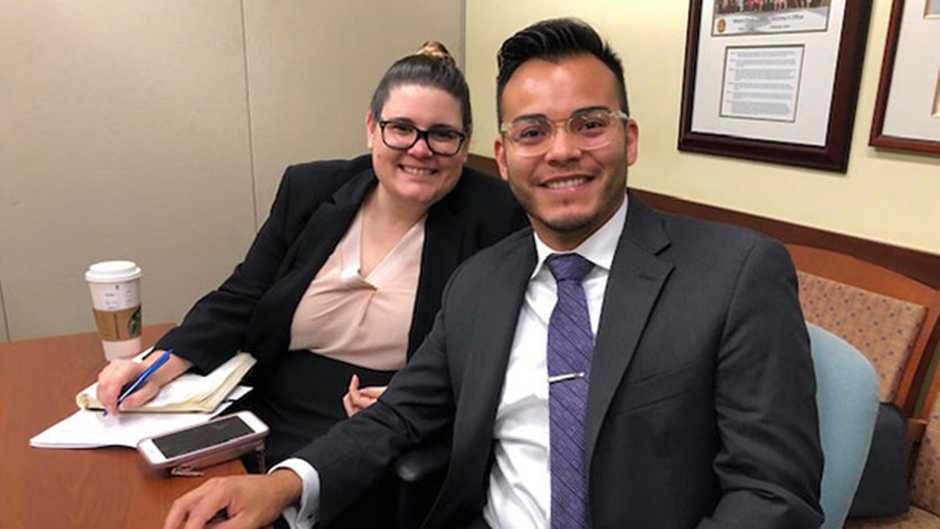A legal challenge to Miami-Dade County’s policy of jailing people for ICE upon request has survived multiple motions to dismiss filed by both the county and federal government. On Friday, Judge Kathleen Williams from the U.S. District Court of the Southern District of Florida issued a 69-page order in the case of Creedle v. Miami-Dade County et al. writing that the plaintiff, Garland Creedle, “has plausibly alleged that his Fourth Amendment rights were violated when the County arrested him pursuant to a detainer because the County was not authorized under either state or federal law to effectuate an arrest without a warrant or probable cause that he had committed a crime.”
“Counties and municipalities that hold people for ICE, even just for 48 hours, should be worried,” said Elizabeth Montano, a third-year UM Law student who is working on the case. “I hope that local governments take note of this decision and revise their own policies.”Under the county’s detainer policy, county jail officials re-arrest people for civil immigration violations at the end of their criminal custody, upon request by ICE. The lawsuit argues that the policy violates both federal and Florida law, including the prohibition against unlawful seizures under the Fourth Amendment of the U.S. Constitution. The lawsuit was filed by the University of Miami School of Law’s Immigration Clinic, Kurzban, Kurzban, Weinger, Tetzeli & Pratt, P.A., and the American Civil Liberties Union of Florida.
The suit, filed on behalf of a 19-year-old United States citizen, sues Miami-Dade County as well as the federal government. Garland Creedle was jailed at Turner Guilford Knight Correctional Center after police arrested him during a domestic dispute. Creedle paid his bond shortly after he was arrested, but county jail officials failed to release him and instead held him for immigration officials, which constitutes a re-arrest. No criminal charges were ever filed against Creedle.
Miami-Dade County has been detaining people in jail for federal immigration enforcement officials ever since President Trump threatened in January of 2017 to cut off funding for cities deemed “sanctuary cities.” After the County Commissioners voted in February 2017, to collaborate with immigration authorities. However, the Trump Administration clarified that only cities that violate federal law would be at risk of losing federal money. Although the County no longer faces the loss of federal funding, the Mayor and Commission have not reconsidered their position on immigration detainers.
“Miami-Dade County had a lawful policy from 2013-2017, when it declined to hold people in jail for ICE,” said Candelario Saldana Briseno, a third-year UM law student who is working on the case. “As the Court points out in Friday’s order, the County had ‘expressed in no uncertain terms that detaining individuals on the sole basis of an immigration detainer is illegal.’ The County has given no explanation for its change in position.”
Creedle was born in Honduras to a U.S. citizen father and has been a U.S. citizen from birth. Immigration authorities have been aware of Creedle’s U.S. citizenship since 2015 when they filed a motion to terminate immigration court proceedings against Creedle because he is a U.S. citizen.
Other U.S. cities — large and small — have vowed to continue to keep local law enforcement separate from immigration enforcement, including Baltimore, Boston, Chicago, Cincinnati, Denver, San Francisco, Syracuse, and Washington, D.C.
For more information contact Rebecca Sharpless, Immigration Clinic, University of Miami School of Law at 305-798-5604 or rsharpless@law.miami.edu

